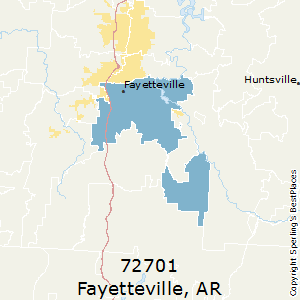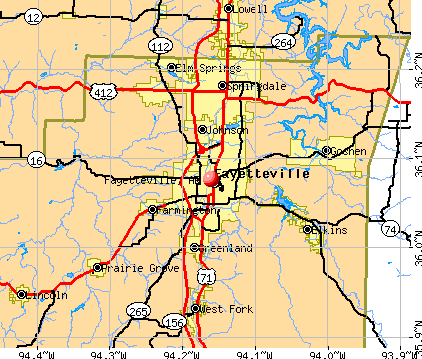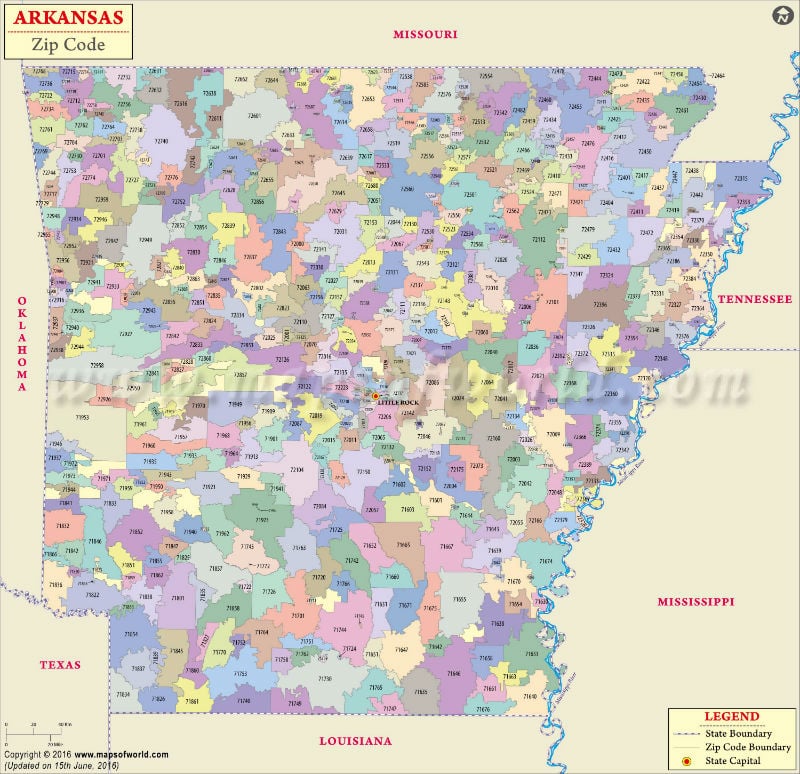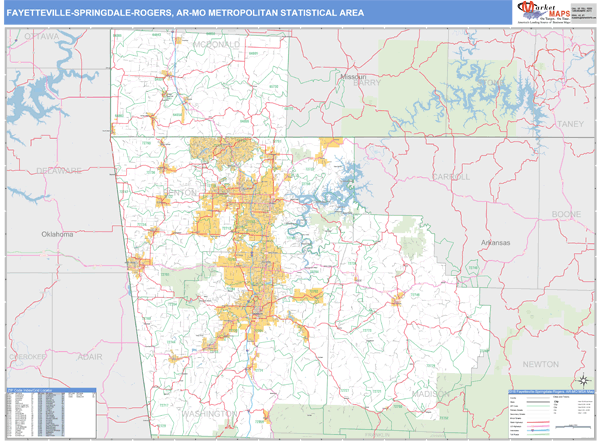Navigating Fayetteville, Arkansas: A Comprehensive Guide to its Zip Code Map
Related Articles: Navigating Fayetteville, Arkansas: A Comprehensive Guide to its Zip Code Map
Introduction
With enthusiasm, let’s navigate through the intriguing topic related to Navigating Fayetteville, Arkansas: A Comprehensive Guide to its Zip Code Map. Let’s weave interesting information and offer fresh perspectives to the readers.
Table of Content
Navigating Fayetteville, Arkansas: A Comprehensive Guide to its Zip Code Map

Fayetteville, Arkansas, a vibrant city nestled in the Ozark Mountains, is known for its rich history, renowned university, and thriving arts and culture scene. As the city continues to grow, understanding its intricate network of zip codes becomes increasingly important. This comprehensive guide explores the Fayetteville zip code map, providing valuable insights into its structure, functionalities, and practical applications.
Understanding the Fayetteville Zip Code System
The United States Postal Service (USPS) assigns zip codes to facilitate efficient mail delivery. Each zip code designates a specific geographic area within a city or region. Fayetteville, Arkansas, is divided into several distinct zip codes, each serving a particular neighborhood or district. This system ensures that mail reaches its destination accurately and expeditiously.
Exploring the Fayetteville Zip Code Map
The Fayetteville zip code map is a visual representation of the city’s postal code distribution. It visually divides the city into distinct regions, each associated with a specific zip code. This map is a valuable tool for various purposes, including:
- Locating Addresses: The map helps identify the zip code associated with a particular address within Fayetteville. This information is essential for sending mail, packages, or other correspondence.
- Understanding Neighborhood Boundaries: The zip code map provides a clear understanding of neighborhood boundaries within the city. This can be helpful for residents, businesses, and community organizations seeking to identify specific areas of interest.
- Planning Routes and Deliveries: Delivery services, such as couriers and postal carriers, utilize the zip code map to optimize their routes and ensure efficient delivery of goods and services.
- Conducting Market Research: Businesses can leverage the zip code map to analyze demographics and consumer patterns within specific areas of Fayetteville. This information is crucial for targeted marketing campaigns and strategic business decisions.
Key Fayetteville Zip Codes and Their Significance
Fayetteville’s zip codes are not merely numerical designations; they represent distinct areas with unique characteristics and identities. Here’s a breakdown of some of the key zip codes and their associated neighborhoods:
- 72701: This central zip code encompasses the heart of Fayetteville, including the University of Arkansas campus, downtown, and historic neighborhoods like Dickson Street and the Fayetteville Square.
- 72703: This zip code covers the western portion of Fayetteville, including the residential areas of Stonewall, Brentwood, and the University of Arkansas golf course.
- 72704: Located in the northwest, this zip code encompasses the residential neighborhoods of Prairie Grove Road, Wedington Drive, and the Fayetteville Public Library.
- 72702: This zip code stretches across the eastern portion of Fayetteville, encompassing neighborhoods like Farmington, Washington Regional Medical Center, and the Fayetteville Regional Airport.
- 72706: This zip code encompasses the southern portion of Fayetteville, including the residential areas of Shiloh Drive, Wedington Drive, and the Fayetteville Animal Shelter.
Beyond the Basics: Understanding the Importance of Zip Codes
While primarily used for postal purposes, Fayetteville’s zip code system holds broader significance. It plays a vital role in:
- Emergency Response: In emergency situations, accurate zip code information allows first responders to quickly locate addresses and dispatch appropriate resources.
- Government Services: Local government agencies use zip codes to identify residents eligible for specific programs and services, ensuring equitable distribution of resources.
- Data Analysis: Researchers and analysts use zip codes to segment populations, analyze demographic trends, and conduct statistical studies. This information contributes to informed decision-making in various sectors, including healthcare, education, and urban planning.
FAQs about Fayetteville Zip Codes
1. How can I find the zip code for a specific address in Fayetteville?
You can easily find the zip code for any address in Fayetteville using online resources like the USPS website or Google Maps. Simply enter the address, and the corresponding zip code will be displayed.
2. Is there a difference between zip codes and postal codes?
In the United States, the terms "zip code" and "postal code" are interchangeable. They both refer to the unique code assigned to a specific geographic area for mail delivery.
3. What happens if I send mail to the wrong zip code in Fayetteville?
If you send mail to the wrong zip code, it may be delayed or even returned to the sender. To ensure prompt delivery, always double-check the zip code before sending mail.
4. Can I use the Fayetteville zip code map to find local businesses?
While the zip code map primarily focuses on geographic areas, it can indirectly help locate businesses. By identifying the zip code of a specific neighborhood, you can use online search engines or directories to find businesses within that area.
5. Are there any plans to change the Fayetteville zip code system?
The USPS constantly reviews and updates its zip code system to optimize mail delivery efficiency. While changes are possible, there are currently no announced plans to alter the Fayetteville zip code system.
Tips for Using the Fayetteville Zip Code Map Effectively
- Keep a copy of the map handy: Having a printed or digital copy of the map allows for quick reference when needed.
- Utilize online resources: Websites like the USPS website and Google Maps provide interactive zip code maps with additional features like address search and street view.
- Familiarize yourself with local landmarks: Knowing the location of key landmarks within each zip code can help you navigate the city more effectively.
- Use the map to explore new areas: The zip code map can be a valuable tool for discovering hidden gems and exploring different neighborhoods within Fayetteville.
Conclusion: The Importance of Understanding Fayetteville’s Zip Code System
The Fayetteville zip code map is more than just a collection of numbers; it’s a vital tool for navigating the city, understanding its diverse communities, and accessing essential services. By comprehending the structure and functionality of this system, residents, businesses, and visitors can enhance their experience in Fayetteville, ensuring efficient communication, accurate delivery, and informed decision-making. As the city continues to evolve, understanding the zip code map will remain crucial for navigating its vibrant and ever-changing landscape.






Closure
Thus, we hope this article has provided valuable insights into Navigating Fayetteville, Arkansas: A Comprehensive Guide to its Zip Code Map. We hope you find this article informative and beneficial. See you in our next article!
